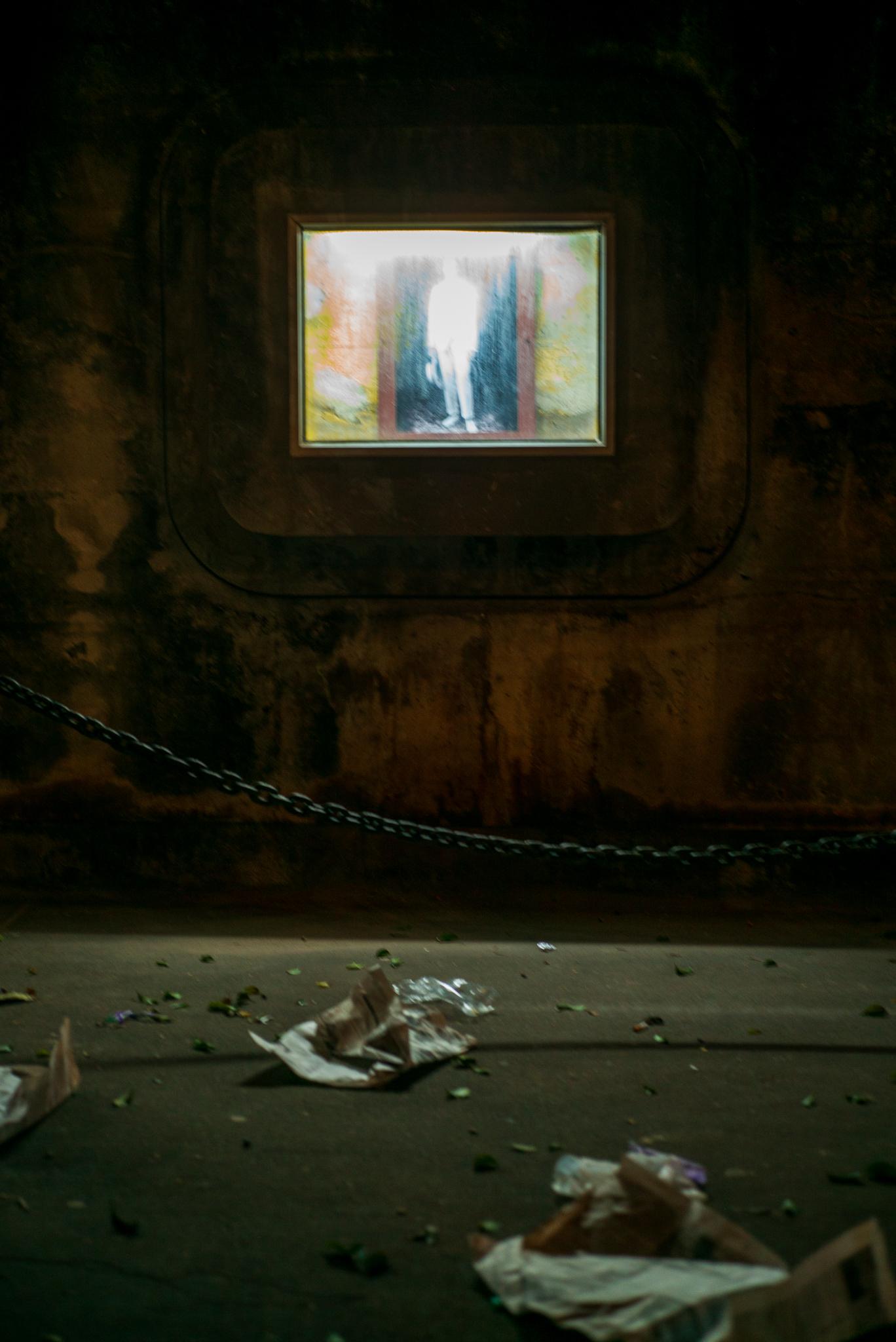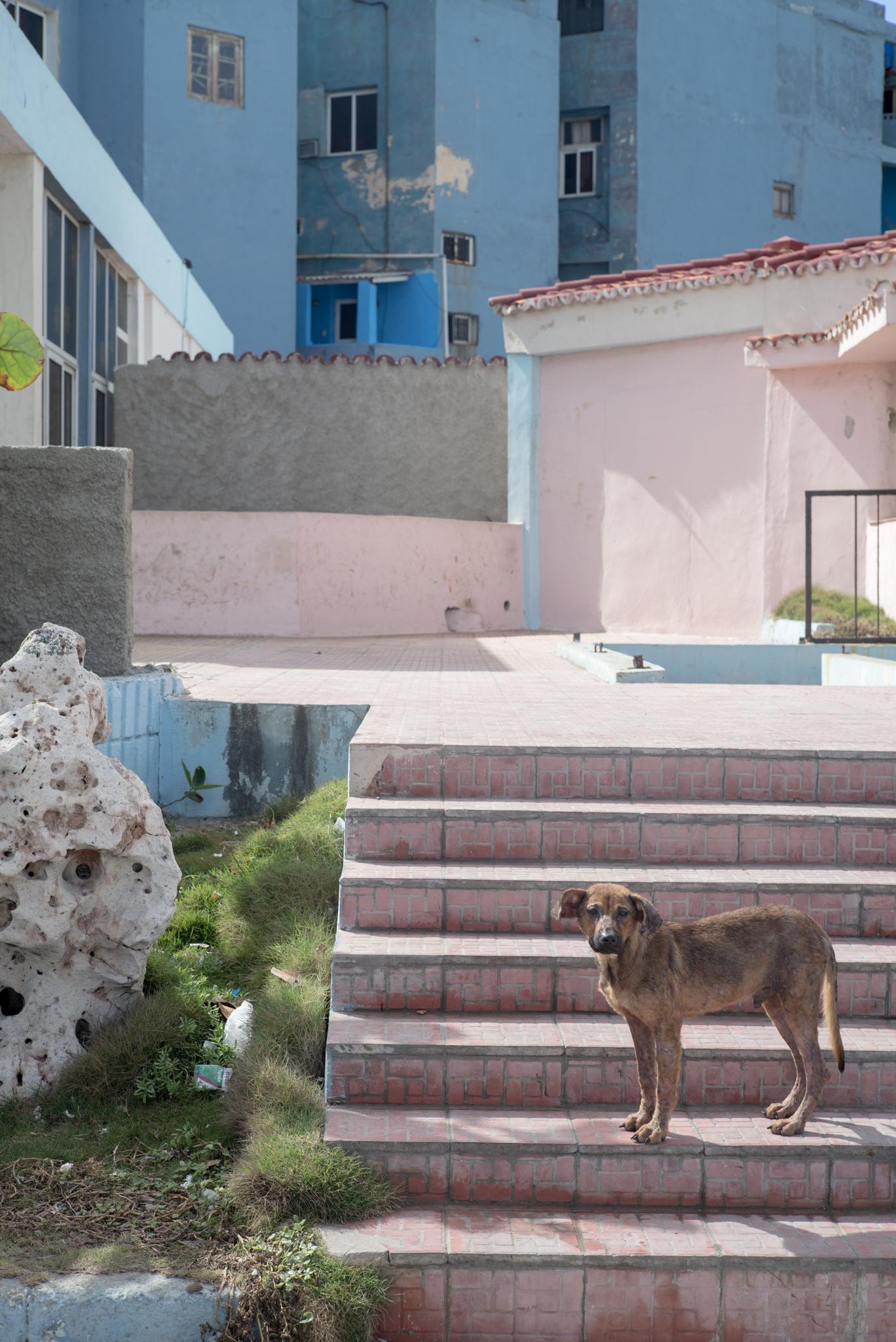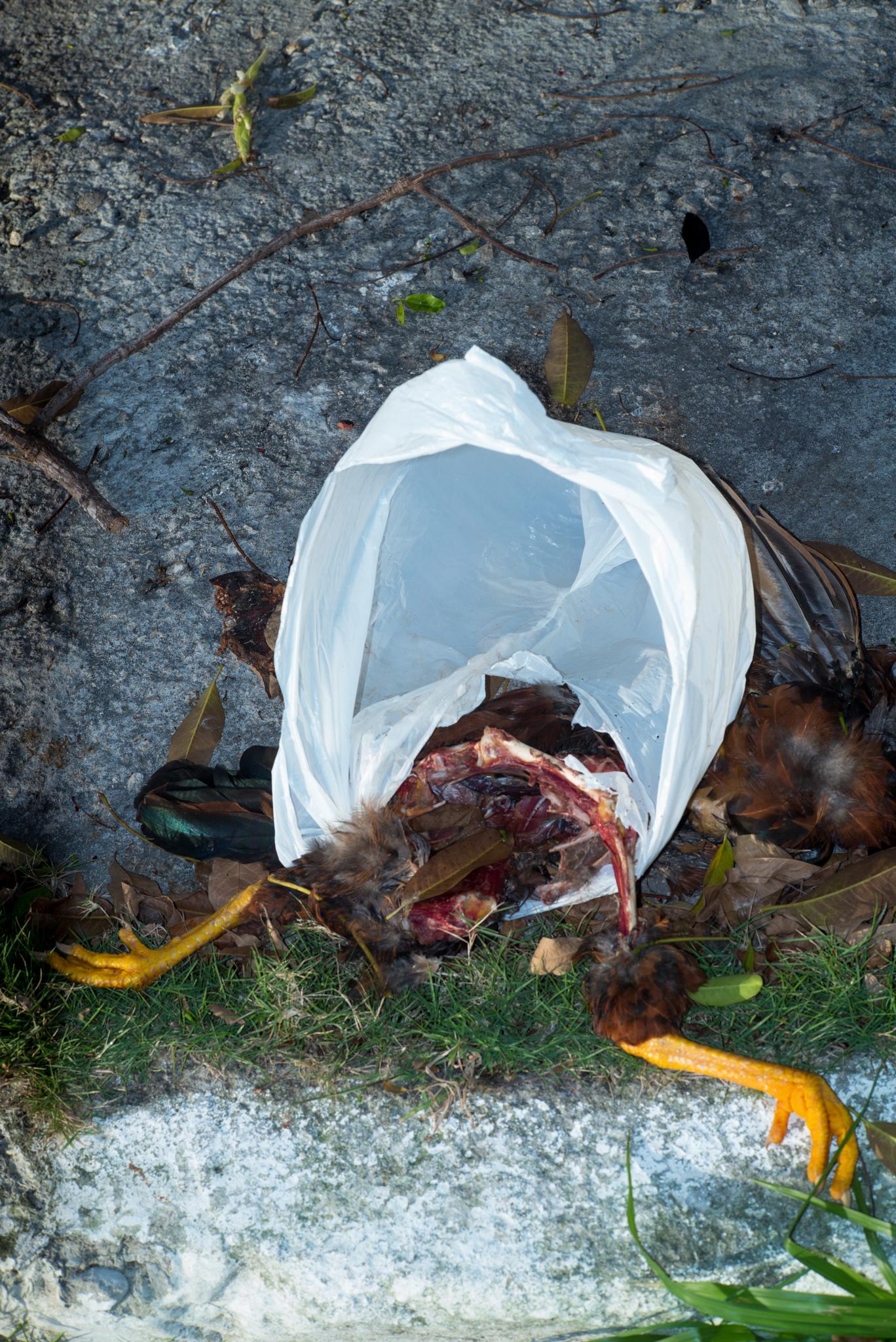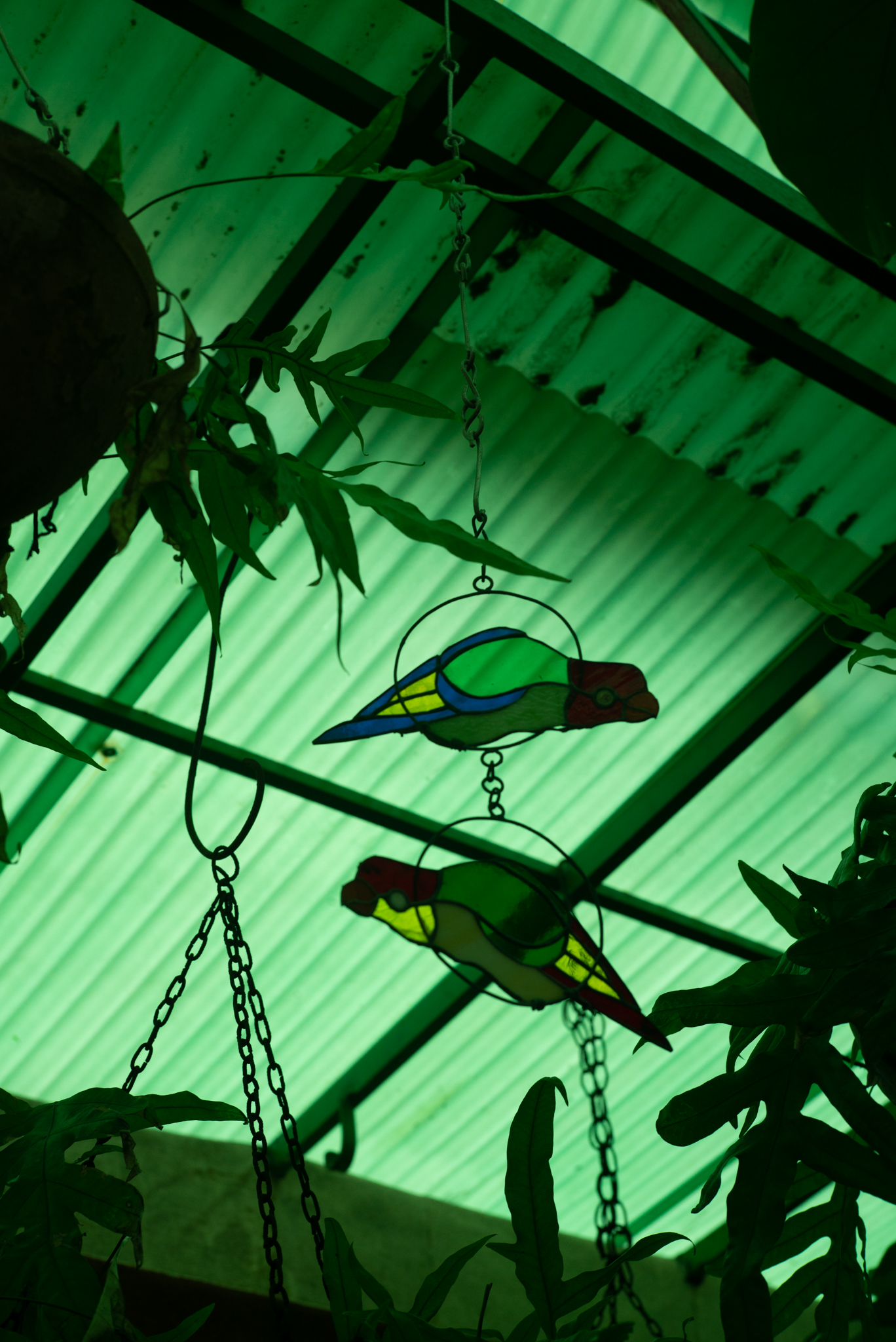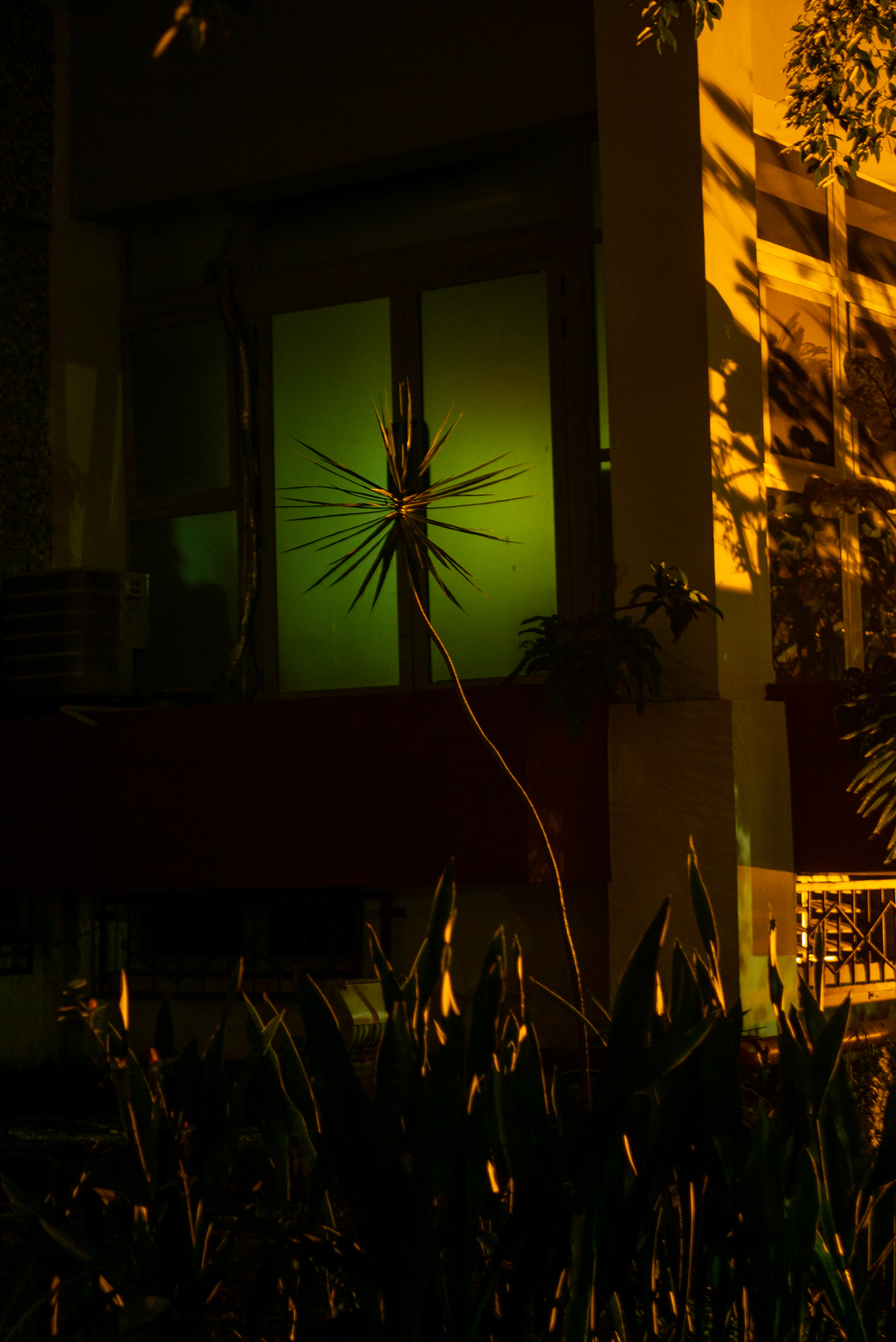日以作夜
Day for Night
| 2020 |
日以作夜(Day for night)是一个电影术语,意味在白天拍摄伪夜景,以此来节省制作经费同时增加对光的可控度。其本质上反应了人对再创造自然现象的控制欲,以及让观众相信所见的一切幻象。这种对待真相的二元对立的态度也是我对古巴最大的感受。古巴短暂的被反反复复殖民的历史给这个国家上了一层魔幻现实的糖衣,让我这个局外人感到困惑,究竟哪些是实在的真实,我在这个国家体验到的一切又有哪些可以被称为正宗的古巴?对于这个地方的历史了解的越多,听到的口述越多,我越发觉得这个地方就像是日以作夜般的巨大片场。这个地方实行两种货币系统,一种给本地人用,另一种给外地人/游客使用;有两种工作,一种拿着固定的永远不够用的薪水,另外一种在政府许可下赚着大把大把游客的钞票;有两种态度,乐观主义者选择留下因为他们相信更好的未来,悲观主义者离开因为他们相信更好的未来不可能在古巴。在白天我见证了这个地方在经济上赖以生存的人造景点和另一边的贫穷;在晚上我感受到社区休眠后的寂静和潜藏的街头暴力。数量惊人的野猫野狗在街上残喘苟活,自由竞争;家猫家狗在阳台上,栅栏的另一边安全地观看街上发生的一切。猫狗生态圈很好地绘制了古巴的政治经济隐喻。在这段短暂停留的时间里,我从未真正在其中看见什么,而是在外面观看着一场巨大的、自我矛盾的幻象。
“Day for Night” is a cinema term that refers to shooting night scene during day time in order to save budget and have more controls over lights.
At the core of its concept lays the human desire to dominate and recreate natural phenomenon that illudes others to believe what is shown. This is how I feel about Cuba, too. The magical realism embedded in Cuba’s convoluted history makes an outsider, like me, constantly question what is the truth of everything that I have experienced so far here. The more time I spend here, the more people I talked to, the more polarized I feel about the Cuban reality, where everything seems to work in a binary system, self-conflicting but special in its own way. With two different currencies and price systems, where Pesco is for the locals and the Cucs for tourists; with two different jobs, one for fixed salary and the other part-time; with two views people hold toward their countries, where the optimist stays for a better future and the pessimist leaves for a better future as well. I witness the fabricated city attractions designed for outsiders and the harsh reality of life during the day; I also sense the tranquility of bedroom community and lurking violence during the night. The city is filled with unleashed wild dogs and cats, struggling for survival day and night, whereas in people’s houses I also see dogs and cats are the most common pets. The cat-dog ecology forms a polarized portrait of Cuba’s new now. Within the short period of time that I stayed in Cuba, mainly Havana, I never really see but only look.
Day for Night
| 2020 |
日以作夜(Day for night)是一个电影术语,意味在白天拍摄伪夜景,以此来节省制作经费同时增加对光的可控度。其本质上反应了人对再创造自然现象的控制欲,以及让观众相信所见的一切幻象。这种对待真相的二元对立的态度也是我对古巴最大的感受。古巴短暂的被反反复复殖民的历史给这个国家上了一层魔幻现实的糖衣,让我这个局外人感到困惑,究竟哪些是实在的真实,我在这个国家体验到的一切又有哪些可以被称为正宗的古巴?对于这个地方的历史了解的越多,听到的口述越多,我越发觉得这个地方就像是日以作夜般的巨大片场。这个地方实行两种货币系统,一种给本地人用,另一种给外地人/游客使用;有两种工作,一种拿着固定的永远不够用的薪水,另外一种在政府许可下赚着大把大把游客的钞票;有两种态度,乐观主义者选择留下因为他们相信更好的未来,悲观主义者离开因为他们相信更好的未来不可能在古巴。在白天我见证了这个地方在经济上赖以生存的人造景点和另一边的贫穷;在晚上我感受到社区休眠后的寂静和潜藏的街头暴力。数量惊人的野猫野狗在街上残喘苟活,自由竞争;家猫家狗在阳台上,栅栏的另一边安全地观看街上发生的一切。猫狗生态圈很好地绘制了古巴的政治经济隐喻。在这段短暂停留的时间里,我从未真正在其中看见什么,而是在外面观看着一场巨大的、自我矛盾的幻象。
“Day for Night” is a cinema term that refers to shooting night scene during day time in order to save budget and have more controls over lights.
At the core of its concept lays the human desire to dominate and recreate natural phenomenon that illudes others to believe what is shown. This is how I feel about Cuba, too. The magical realism embedded in Cuba’s convoluted history makes an outsider, like me, constantly question what is the truth of everything that I have experienced so far here. The more time I spend here, the more people I talked to, the more polarized I feel about the Cuban reality, where everything seems to work in a binary system, self-conflicting but special in its own way. With two different currencies and price systems, where Pesco is for the locals and the Cucs for tourists; with two different jobs, one for fixed salary and the other part-time; with two views people hold toward their countries, where the optimist stays for a better future and the pessimist leaves for a better future as well. I witness the fabricated city attractions designed for outsiders and the harsh reality of life during the day; I also sense the tranquility of bedroom community and lurking violence during the night. The city is filled with unleashed wild dogs and cats, struggling for survival day and night, whereas in people’s houses I also see dogs and cats are the most common pets. The cat-dog ecology forms a polarized portrait of Cuba’s new now. Within the short period of time that I stayed in Cuba, mainly Havana, I never really see but only look.

